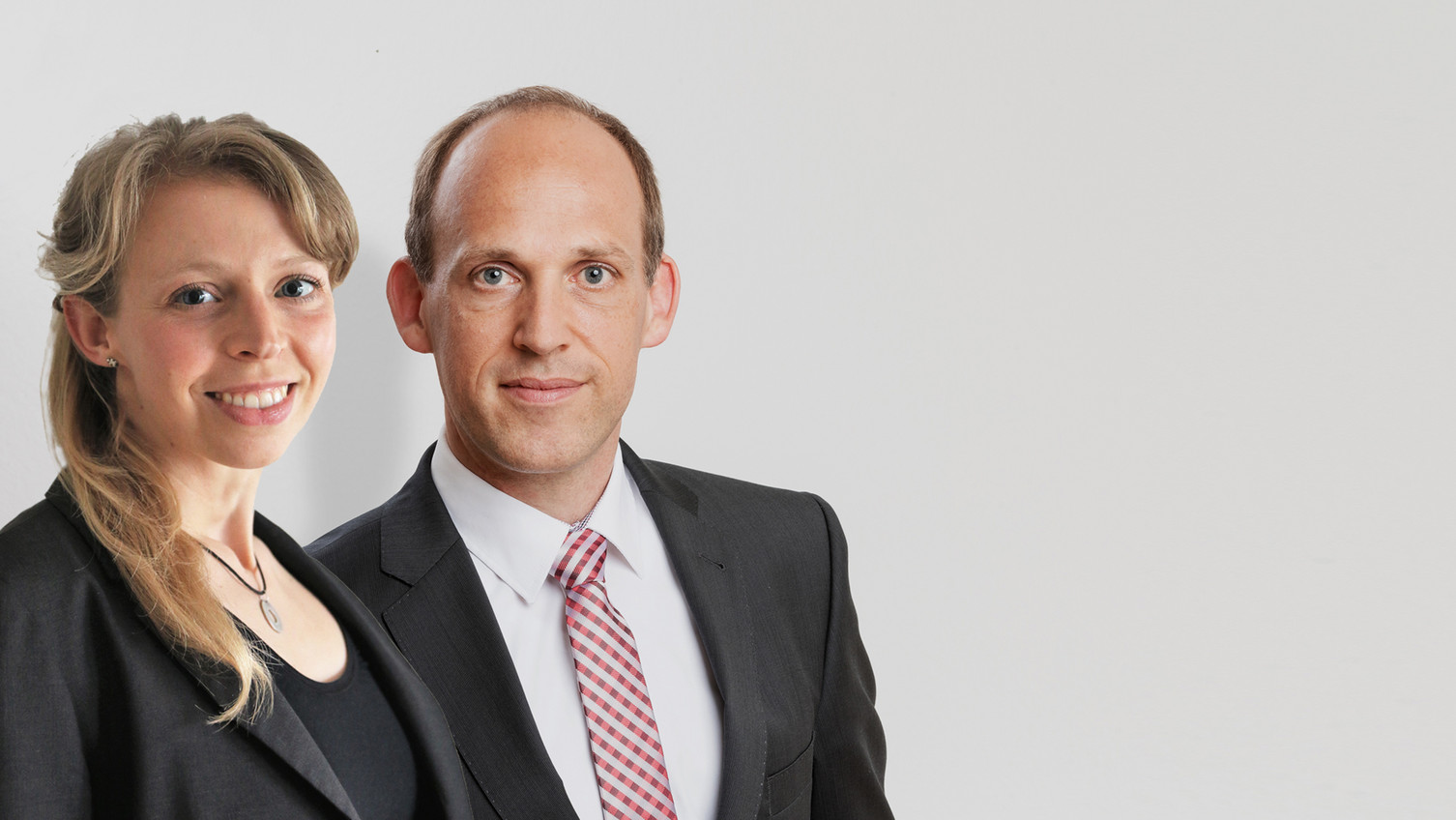Extra-Occupational Master's Degree: "Law shapes the energy transition"
2021-03-31 The legal scholars Thorsten Müller and Caroline Moog are both employed at the Foundation for Environmental Energy Law (Stiftung Umweltenergierecht). He is the scientific director and she is a research assistant. Caroline Moog is also studying for a master's degree in environmental law at Leuphana Professional School. Thorsten Müller is a lecturer in the programme. In their work, both lawyers want to advance the energy transition.
According to the Renewable Energy Sources Act (EEG), the electricity generated and consumed in Germany is to be produced in a climate-neutral manner before 2050. The goal is clear, but the legal situation remains dynamic. The law, which is around 20 years old, is regularly reformed to take into account, for example, changing political objectives or current market dynamics. Ten years ago, the Stiftung Umweltenergierecht (Foundation for Environmental Energy Law), a non-profit, non-university research institution, was established to deal with the legal framework of the energy transition. The legal scholar Thorsten Müller was the initiator and is one of the founders: "We are investigating how the law must be changed for the energy transition to be successfully implemented. Law defines the framework for society and the economy and is thus the means in a democratic constitutional state to shape such a comprehensive transformation. However, the existing law does not address the necessary changes to enable the desired technical and social innovations or the required expansion of renewable energies. New law must therefore be developed on an ongoing basis."
The lawyer completed his legal traineeship at the Federal Ministry for the Environment, among others, and was already interested in the connection between sustainability and legal issues at that time: "I was a high school graduate at the Gymnasium Johanneum in Lüneburg when the first Castor was transported to Gorleben. But even then it was not enough for me just to be against it. We need new solutions and I would like to help develop them," explains Thorsten Müller.
Caroline Moog finished her law degree having a similar attitude: "Environmental protection has been an issue for me for a long time. I would like to get involved in this societal field as a lawyer." She is currently completing the part-time master's programme LL.M. Environmental Law at the Professional School. Her master's thesis is on the legal situation of Tiny Houses - currently, however, exclusively from her home office: "I was surprised how well online teaching was implemented right from the beginning of the pandemic." In her studies, she benefits not only from the courses on environmental and sustainability law, but also from interdisciplinary exchange. This is because environmental science topics are also part of the curriculum: "I understand the bigger picture better. For me, the study programme is a good addition to my work at the foundation, which addresses very specific legal issues."
Thorsten Müller has been a lecturer in the master's programme since 2016: "Sustainability and energy law are topics of the future and a Master’s of Law in this area is a qualification in great demand," says the lawyer. He is currently completing his doctorate at Leuphana. His supervisor is Thomas Schomerus. The professor of public law, in particular environmental and energy law, had already brought Thorsten Müller into the team of lecturers during the planning phase before the start of the degree programme: "I have been involved in environmental and energy law for over 20 years and am pleased to be able to pass on my knowledge to the students here."

